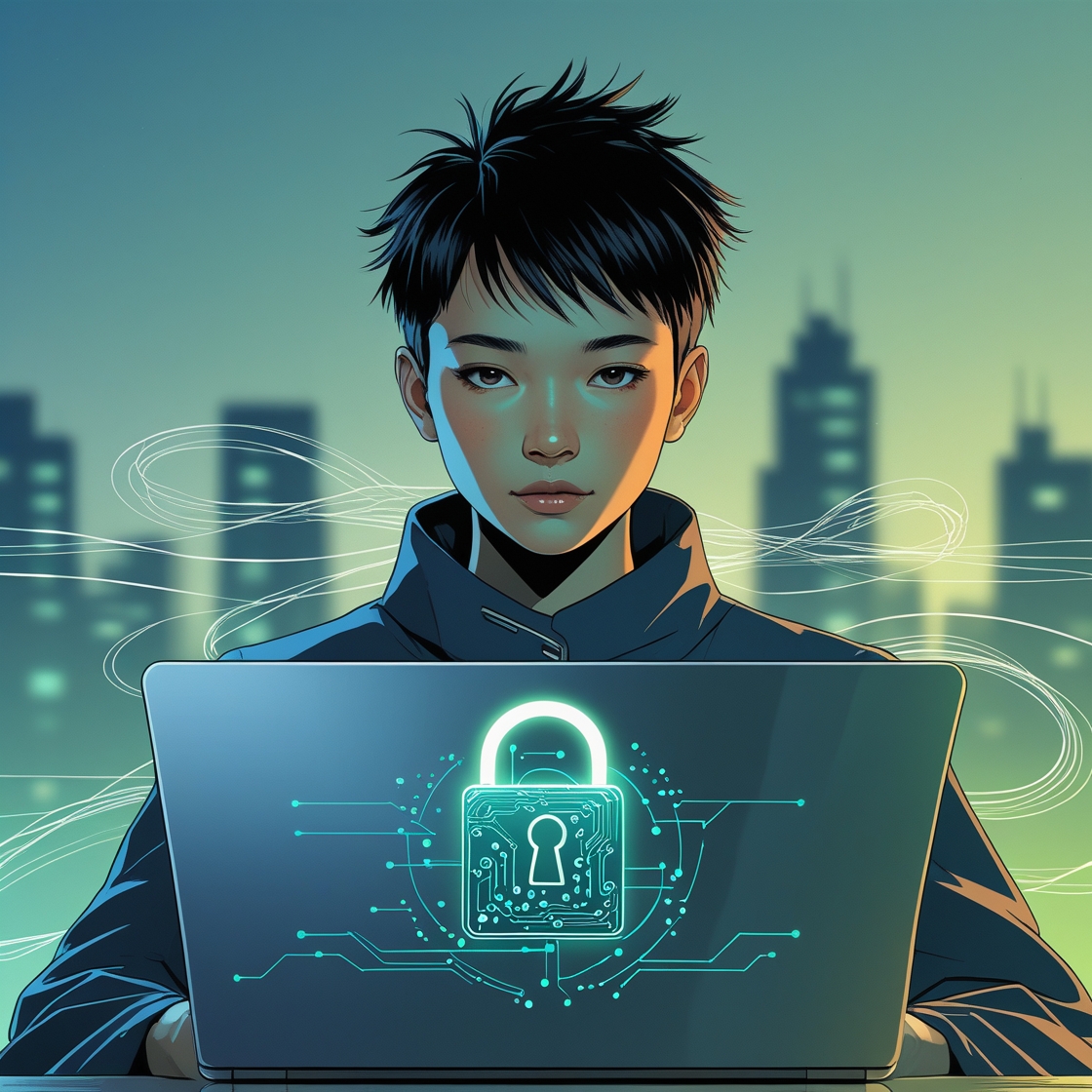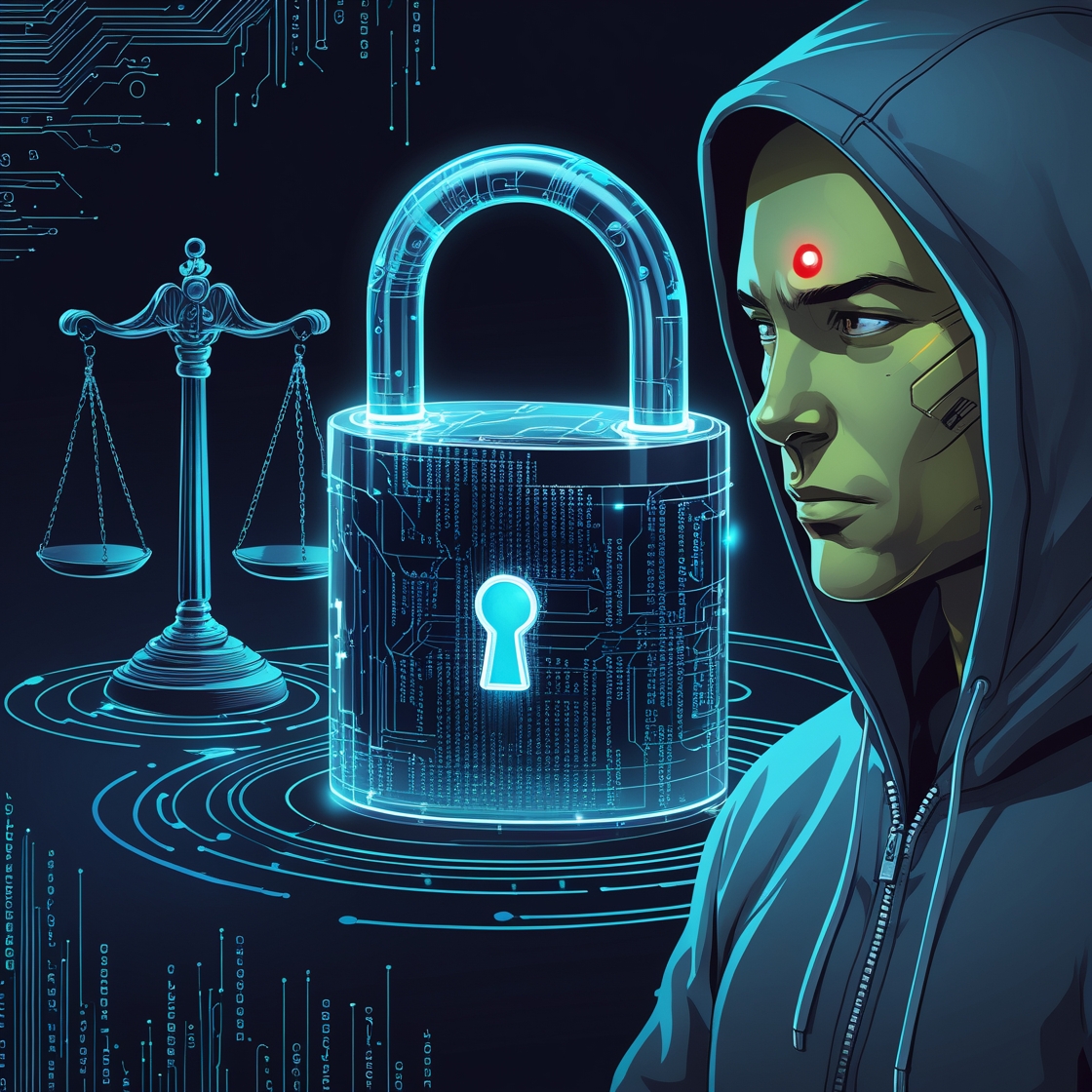Mastering Data Privacy and Cybersecurity: Protecting Your Digital World
In the context of increasing digitalization, data privacy and cybersecurity have become the challenging topics for everyone. From data leakage prevention to compliance with legal requirements the issues and their counter solutions are more pressing now than ever.
What is Data Privacy and Cybersecurity?
Data privacy involves safeguarding individual’s information to avoid access or use by unauthorized persons. It practically empowers people in the way they want their data to be gathered, processed or utilized. On the other hand Cyber security is the protection of systems, networks, and data from cyber attacks.
Integration of data privacy and cybersecurity is the key to having strong measures against current threats. Cyber security, cyber security data protection, and privacy are terms that suggest the close relationship between these areas.

Data Privacy and Cybersecurity
Data privacy and cybersecurity are two related disciplines concerned with how personal information can be shielded from unauthorized access in the growing age of technology. So we can say that Data privacy refers to collecting, processing, and handling of data collected from individuals and organization legally and appropriately based on the data protection regulations such as GDPR, HIPAA and CCPA. It lays down the principles of user control over personal information and the keeping of records of information processing activities. Cybersecurity focuses on protecting systems, networks, and information from malicious actors, intrusions, and incidents. It involves using strong barriers like firewalls, encryption, and identity verification mechanisms to eliminate cyber risks. Together, these disciplines are crucial for reducing risks, ensuring compliance, and fostering trust in the digital environment.
As simple as it may sound, it is probably the most important question to ask when it comes to the analysis of data privacy: why is data privacy important?
Modern people and even business people encounter constant risks by having personal and business data. Cybercriminals exploit vulnerabilities to steal sensitive information, leading to:
- Identity Theft: It lowers victims’ morale and makes impersonation with the stolen data cause financial damages.
- Data Breaches: Companies suffer customer alienation and monetary fines when breaches take place.
- Legal Consequences: Failure to meeting the requirements outlined under regulations such as GDPR or CCPA means organisations face fines.
For instance, data privacy compliance issues for a startup are fundamental when IT comes to creating that trust and operating effectively.
Cybersecurity And Data Privacy Chicago
Cybersecurity and data privacy are vital in Chicago, with laws like the Illinois Data Privacy Act ensuring data protection. Resources in Chicago equip businesses with necessary security measures to address evolving cyber threats. Stay proactive to strengthen trust and safeguard against emerging risks, security and Data Privacy Schaumburg
In general, sustainable data protection is a top priority for Leesburg, a rapidly developing region near Chicago known for its growing technological and business presence. As more organizations in Schaumburg process large volumes of valuable data, robust defense mechanisms against IT breaches are essential. Local businesses must comply with state laws, including the Illinois Data Privacy Act, which establish crucial legal standards for protecting personal and business information. Schaumburg offers access to cybersecurity professionals, training, and advanced technology, creating a digital transformation landscape. Ongoing engagement in risk mitigation is vital for fostering management’s trust in data security.
KCCSB Cybersecurity and Data Privacy
The Kansas City Cyber Security Board (KCCSB), as a local organization, is concerned with promoting cyber security and data protection systems in and around Kansas City. Offering knowledge, tools, and interaction, KCCSB helps maintainers of information, the organizations, and individuals including to counter modern threats in cyber space. The board gives information about the compliance regulations like GDPR and CCPA, and encourages multistakeholder cooperation of business, government and cybersecurity specialists. KCCSB has the utmost commitment in making the community apply all measures based on best practices that make the community fully secure in the digital world.
Cybersecurity and Data Privacy Barrington
One of the suburban communities situated in Illinois has declared cybersecurity support and data protection for inhabitants and commercial enterprises as vital. As more organizations shift their business processes online, the protection of these assets from cyber dangers is of essence. All the businesses and organizations within Barrington Legal are bounded by the general rules of data protection that applies to them under the laws of Illinois Data Privacy Act on issues to do with personal and financial data. The community gains from getting the services of specialist in cyber protection, informational system protection, and state of the art gadgets for protection. In keeping with these priorities, Barrington is further creating a secure and credible cyber space for all.
Cybersecurity and Data Privacy Highland Park
Highland Park as a community in Illinois understands the emerging feature of cybersecurity and data privacy in today’s world. Currently, local businessmen and women and their families are struggling to shield their personal and financial information from cyber criminals. Adhering to state laws like the Illinois Data Privacy Act and implementing best cybersecurity practices helps reduce data handling risks. This research identifies local resources within Highland Park to enhance cybersecurity and access top digital defense professionals and training. By ensuring data confidentiality and robust cybersecurity measures, the community builds trust and secures the future of its digital environment.

Recommended Strategies for Protecting Business from Cyber Threats
That is why the issue of cybersecurity data protection remains critical for businesses. Here are some best practices:
- Adopt Zero-Trust Security: There should be the presumption of untrusted user and untrusted device until the user and device is authenticated.
- Regularly Update Software: Some of the risks which can be reduced include; Ensure that systems are being updated.
- Train Employees: Inform staff about how to avoid phishing and how to act securely in terms of IT use.
- Encrypt Data: The key solution to the problem of safe transportation of data is to employ encryption.
- Monitor Networks: Consistently perform audits of the networks in use and conduct monitoring activities in the search for malicious behavior.
Such measures can greatly help to minimize the possibility of breaches, and compliance with data privacy in cyber security.
Cybersecurity and Data Privacy Law
Cybersecurity and data privacy laws regulate how organizations obtain, store, analyze, and secure information on digital platforms. These laws ensure personal and sensitive data is protected and hold data owners accountable for breaches or misuse. European regulation is led by GDPR, while the CCPA governs in the U.S., with specific sectors like healthcare governed by HIPAA. To comply with these laws, organizations must implement sound practices for user data protection, disclosure, and accountability, along with clear policies for breach handling. These laws evolve in response to emerging cyber threats to safeguard rights in cyberspace.
Legal Controversies Related to Data Protection and Computer Security
The legal landscape is complex, with various regulations and standards shaping compliance:
- GDPR Compliance Tips: make sure people know when their data is being collected, and follow the Pareto principle and let users regulate it.
- CCPA Requirements: Emphasis on the data sharing retention accesses and secured provisions for the residents of California.
- NIST Data Privacy Framework: A structured coded should formulate standard operational procedures for dealing with classified information.
- Out of court civil actions and tarnishing of image.
- Crack down on buildings and businesses not in compliance with legislation. secure storage for California residents.
Non-compliance
Non-compliance can result in severe penalties, including:
- Fines under GDPR reaching up to €20 million or 4% of global turnover.
- Civil lawsuits and reputational damage.
- Regulatory action against non-compliant businesses.
There are also issues particular to particular segments like cybersecurity law firms that have to protect their clients’ information and at the same time be secure from sensitive regulation.
Overall, the current research initiatives exemplify the promising direction of creating hybrid approaches: In the linguistic analysis of the labor market this trend is evident, and I think, is opportune.
Possible Approaches to the Data Privacy and Cybersecurity Problems
For Individuals
- Use Strong Passwords: Don’t use the clichés and use the different types of character.
- Enable Two-Factor Authentication: Make it more secured than it used to be.
- Be Cautious with Public Wi-Fi: Connect Securely using Virtual Private Networks VPNs.
- Regular Software Updates: Overcome vulnerability by ensuring that all the systems are up to date.
For Businesses
- Conduct Regular Audits: Evaluate the security and list the problems.
- Adopt Zero-Trust Architecture: Check every user and device that seeks to connect to the organization’s resources.
- Invest in Advanced Threat Detection Tools: Integrate AI powered toolsets to identify threats and provide response to them in real time.

FAQs
What is the issue associated with cybersecurity and data privacy?
The threats in the cyber world are dynamic and often unsophisticated security arrangements impose constraints in aspects of convenience and security.
What role does privacy play in cybersecurity?
Privacy makes sure that anyone’s information that is shared for a particular reason is secure and people trust the organizations or whoever is in charge of keeping the information safe or private.
What are 5Cs of cybersecurity?
The 5 Cs of cyber security include- confidentiality, credibility, control, coordination, and competition.
What’s the difference between data privacy and data security?
Data privacy deals with proper management of data and taking permission from users, data security has to do with safeguarding data from hackers or intruders.
What is data privacy and cybersecurity?
Data protection enables responsibility for people’s information while cyber protection safeguards systems and data against malicious attack.
What is the greatest threat to cybersecurity?
This would be escalated by the fact that threats in the cyber realm are becoming more elaborate and often advance faster than the defenses for them.
How can personal information be safeguarded on the internet?
Password should always be created with the use of alphanumeric and avoid sharing personal data on social media and other social platforms.
Is it important to know how cybersecurity helps to ensure the security of the corresponding information?
Information security uses elements such as encipherment, firewalls, and threat detectors to deny unauthorized access to one’s information.
What type of cyber threats are dominant in 2024-25?
Given the present threat status, phishing, ransomware, zero-day exploits, and insider threats shall prevail.
Opinion of a Lawyer
Opinion of a renowned expert in the relevant law, should seem like:
Evaluating the twelve areas, one can notice that modern companies need to follow the data protection rules grouped under GDPR, CCPA NIST. Ignorance is not a defense. Policies can be established and effective, its services could be spread among employees, and legal advisors could be involved to address such risks.
Emphasizes should be on:
- Drafting Comprehensive Privacy Policies: Scribes specific detail on how data is gathered, processed, used and safeguarded.
- Obtaining Informed Consent: Users should be well informed and consent to the processing of data.
- Maintaining Incident Response Plans: Ensure to adapt for various data breaches incase they happen in order to reduce the effects.
- Engaging with a Cybersecurity Law Firm: It’s still important to consult legal advice when there are any issues regarding complicated laws.
For professional written legal advice, you may contact Aneel Irshad Khan, Advocate High Court, who brings over 15 years of expertise in corporate, tax, audit, accounts, and legal services.
Conclusion
Today, data protection and security focus on safeguarding individual freedom and entrepreneurship in our interconnected world. Privacy objectives vary, but enterprise-level steps, such as zero-trust security, are essential. Vigilance towards regulations is crucial.
To sustain a business certain legal requirements must be met though a sound business plan may be compromised. Information protection goes beyond IT; it is a critical matter of trust, sustainability, and relevance in today’s cyber-threatened landscape.




